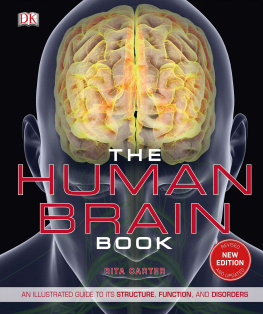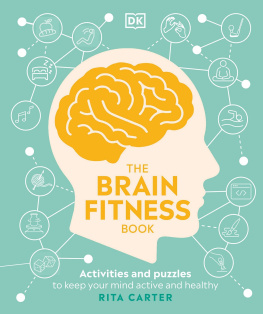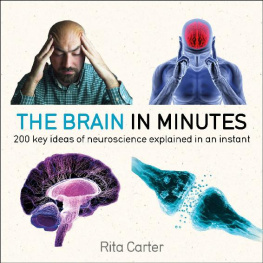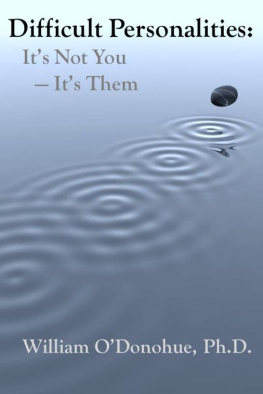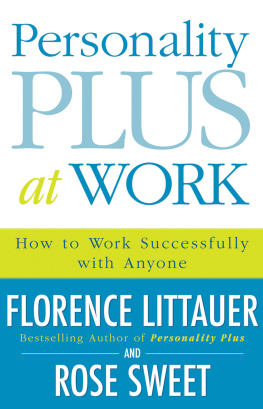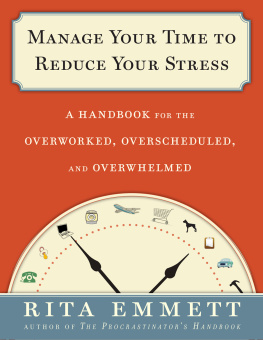This book was germinated during a spot of light relief after a heavy dinner. The meal had been a tricky one. It was a formal do that marked the end of a three-day medical conference and I was stuck up the far end of the table next to an eminent ear, nose and throat specialist who had earlier delivered a mind-numbingly technical lecture in an unrelieved monotone. Our conversation (blocked sinuses) had stalled and I was itching to go. Before I had a chance, however, the master of ceremonies announced an after-dinner entertainment.
A nondescript man in a crumpled tuxedo walked into the room and did a few magic tricks. Then he asked us all to stand up. Now close your eyes, he said, and put your hand out in front of you. Make it into a fist and imagine it is clutching a bunch of gas-filled balloons. Pause. Think of the balloons pulling upwards, he continued, pulling their strings tight, tugging and struggling to fly away. Pause. Up, they are pulling, up and up and up, dragging your hand towards the sky. Pause. How hard they pull. Feel your hand is being pulled up and your arm is being stretched
Around this point I opened my eyes to see what was happening. I noticed my own arm had risen a few inches and so had most others. But here and there, dotted among the diners, I saw people whose arms were pointing straight up to the ceiling. Some of them were reaching so high they were standing on tiptoe, their bodies taut and straining, fists clenched, heads thrown back, looking for all the world as though they were about to be borne aloft. To my surprise I saw that the ENT specialist at my side was among them.
One by one the more obviously entranced audience members were brought forward to entertain us. A prim-looking woman did an excellent imitation of Mick Jagger, a knee man relived his sixth birthday party, and a distinguished liver consultant seemed wholly persuaded that he had come out by mistake in his pyjamas. Each one performed like a seasoned comic, including the ENT doctor who became a Martian invader who happened to have landed on a nudist beach. Blogdrachnop! he spluttered, twitching his eyebrows like twin antennae. Channy tom der kump? Glup!
Apart from how funny it was (you had to be there), the thing that really riveted me about this spectacle was the utter transformation of the performers. It seemed for all the world as though the banal patter of the hypnotist had released in each of them a previously hidden personality. In some cases, the difference was so marked that it was almost impossible to believe the two were generated by the same brain.
You have probably seen enough vaudeville hypnotism to know that this happens. But have you ever wondered how? Could it be that we all have an uninhibited entertainer within us, capable of acting out any role that is suggested? If so, where are they lurking when not on show? Do we have to be hypnotised to release them, or might we switch from one to another in other circumstances too? And what about the roles they played? Was the six-year-old birthday boy just a public performance or did the mans feelings match the goggle-eyed excitement displayed on his face? Was the gyrating Mick Jagger impersonator looking out at the world through her own eyes, or with the jaded perception of an aged rock star?
These questions took root in my mind and I knew they would nag away at me until I found some answers. I thought I knew where to start looking. In my 1998 book Mapping the Mind I examined some of the brain mechanisms the laying down of personal memories, for example that produce our sense of identity. Then, in my subsequent book Consciousness, I looked at the weird effects that can occur if these mechanisms cease to work in the normal way. One of them is the breakdown of our usual sense of oneness. Instead of having a single, consistent identity, a person behaves, and may feel, as though they are one personality now, and then another and, perhaps, yet another each with a separate name, personality and set of personal memories.
The mental state that produces entirely separate personalities, or alters, is a seriously dysfunctional condition and it seems at first to be too bizarre to have anything to do with normal people. But, watching those utterly sane and sensible medical folk going through their party pieces at the behest of the hypnotist, it occurred to me that they looked very much like people switching from one alter ego to another. Could the brain-state produced in them by hypnosis be in some way similar, I wondered, to the condition that causes the dramatic mental shape-shifting seen in people with identity disorders?
Then I started thinking about other personality transformations I had seen switches that occurred in everyday situations rather than in response to hypnotism. There was the boss I once suffered, who ran his department with cold, impersonal efficiency but turned into a lurching, sentimental moron after his end-of-day dose of alcohol. The so-together female colleague who fell into inarticulate giggles whenever a man paid her a compliment. The girlfriend who always ran any show except in her own home where she turned into a doormat for her vile husband. The devoted family man who turned out to have a twice-a-week gay cruising habit. The shy-as-a-mouse academic who when asked to deliver a quick talk on her area of expertise ended up hogging the microphone for two hours.
And then, of course, there is me: a finicky perfectionist half the time and a reckless ignorer of detail the other half. A party-pooper one week, queen of the night the next. Careful plate-watcher on Wednesday, fridge-emptying gannet come Sunday. Could inconsistencies of character such as these also be seen as a form of mental multiplicity?
With this question in mind I took a fresh look at what recent brain research has revealed about human memory and our sense of personal identity. I found that by thinking of each person as a group rather than as a single, unchanging personality many familiar but previously puzzling things made much more sense. In particular, certain features of our memory system that are generally treated as unrelated phenomena clicked together like pieces of a jigsaw. The way that we can remember some things at some times and not at others, for instance, is entirely understandable if you think of each person as a vessel in which different personalities each carrying their own bag of memories come and go. So is the way our behaviour alters in response to different situations and different people. And it removes the mystery of why so many of us display entirely contradictory character traits: introvert and extrovert generous and mean, ambitious and lazy


